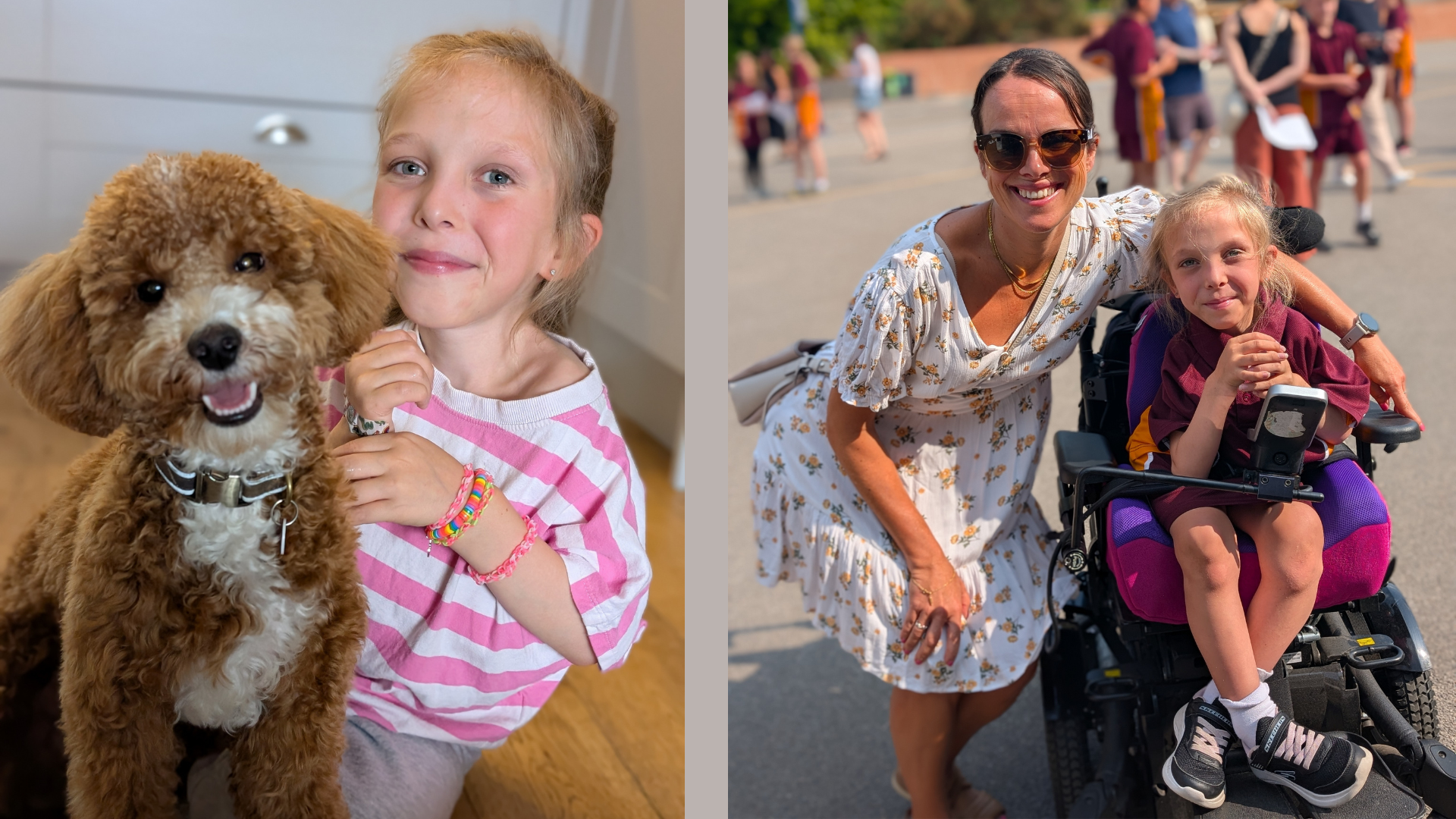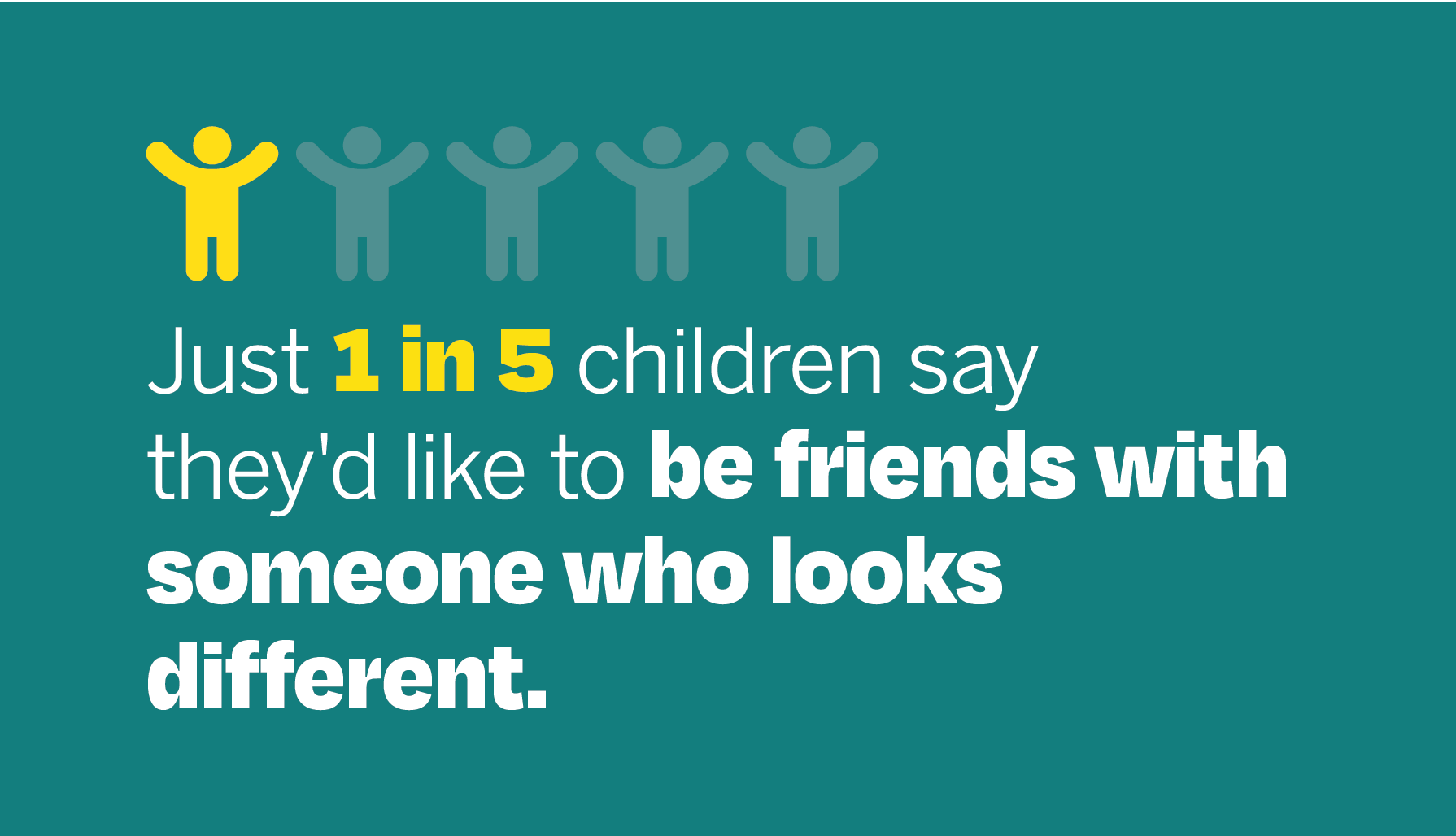My daughter Isla has a rare genetic condition called Fibrodysplasia Ossificans Progressiva (FOP). FOP is a progressive disorder that causes bone to form in soft tissues like muscles, tendons, and ligaments, leading to pain and severely limiting movement. As a result of FOP, Isla also has scoliosis.
Despite the challenges FOP brings, Isla is bright, creative, and strong-willed, with a wicked sense of humour. She loves music, dancing, fashion, make-up and recently wrote and recorded her own song. Isla is incredibly close to her brothers and younger sister – they’re often putting on shows together or dreaming up games. Although shy at first, once she’s comfortable, her fun, bubbly personality shines through.
This September, Isla will start secondary school – a big milestone that’s prompted me to reflect on her primary school journey with FOP.
School so far has been a mixture of joy, pride and heartbreak. Since starting, Isla’s condition has progressed significantly, but so has her confidence. She’s made some lasting friendships and had some incredible experiences, from disability sports events to her classroom achievements, and we’re grateful to the staff who truly saw and supported her.
Yet, alongside these bright moments, there were painful experiences that highlighted the ongoing need for better inclusion of children with rare conditions like FOP. At her Year 6 leavers’ assembly and school play, Isla was barely visible – other children stood in front of her the entire time. For a child who had worked so hard just to be there, it felt like she had been erased. And at last year’s sports day, when her team won their event and took a victory lap, Isla wasn’t included. A moment that left both of us in tears.
These moments stay with us, not because Isla needed to be centre stage, but because every child deserves to be seen, included, and valued.
There were also the quiet, everyday challenges. Isla is 11, but height-wise, she’s the size of a four-year-old and won’t grow much more. For her, this is the worst part of her disability, because it has a big impact on how she’s perceived. It means she sometimes ends up as a target for teasing or misunderstanding. At school, she was called a “baby” or left out of group moments. She’s remarkably resilient and doesn’t always take these things to heart, but, as her mum, it’s incredibly hard to witness. It cut deep and stays with me, meaning I carry a quiet grief that often goes unseen.
When classmates were given the chance to understand her, they responded with kindness. But children need guidance. Structured, age-appropriate conversations about disability and difference could have prevented some of the awkwardness or exclusion.
Another layer of difficulty was the constant need to explain- educating new staff, pupils, even visitors about her condition. Fibrodysplasia Ossificans Progressiva is rare, and without awareness, she was often underestimated. We overcame a lot by advocating continuously, helping the school build an understanding care plan, and ensuring there was a trusted adult she could rely on. FOP Friends (the UK’s only charity supporting people with FOP), have a fantastic resource for schools that has helped steer conversations. We also learnt that when Isla had chances to share her story or lead in her own way, it helped shift perceptions about her condition – but those moments needed to be more frequent and embedded in the classroom culture more meaningfully.
Some staff went above and beyond, particularly Isla’s teaching assistant who supported her for over a decade and became a trusted constant for both Isla and I. That said, I wish there had been more consistency in how inclusion was understood and implemented – particularly during unstructured parts of the school day, like break times or social activities. Sometimes it felt like Isla was “fitted in” rather than truly included. A more proactive approach to disability awareness and whole-school training would have made a big difference.

Nicky and Isla have had lots of open conversations about what’s ahead, validating Isla’s feelings and building her confidence.
Looking ahead to starting secondary school is a big mix of excitement and anxiety. Isla is ready for a fresh start and more independence, but there are also nerves about how her condition will be managed, how peers will react, and whether she’ll feel safe and seen.
We’re doing everything we can to prepare Isla, both practically and emotionally. We’ve met with the Special Educational Needs Coordinator (SENCO), shared Isla’s health and care plan, and arranged visits for her to get familiar with the school’s layout. We’ve also helped the school understand her needs not just physically, but socially and emotionally.
We’ve had lots of open conversations about what’s ahead, validating Isla’s feelings and helping her feel secure. Isla is practicing new routines, has visited the school and met some of the staff who will support her. Emotionally, we’re focusing on building confidence — reminding her of everything she’s achieved and that she belongs in this next chapter just as she is. Isla has had regular music therapy sessions that have focussed on the transition and the strengths she will bring, they will continue as she starts her secondary school.
Looking back, one of the biggest lessons we’ve learnt is that schools need to move beyond simply accommodating children with differences. They need to genuinely include and empower them. That requires training staff, listening to disabled children’s voices, and recognising that inclusion is about mindset as much as logistics. Representation, empathy, and consistent communication go a long way. It shouldn’t fall solely on parents, on the child themselves, to educate everyone.
Overall, watching Isla navigate primary school has been a real mix of pride and pain. As her mum, I’ve often felt like I carry the weight of the things she doesn’t see, and the emotional labour of constant advocacy. But as she moves into secondary school, it’s important that she begins to advocate for herself, on her own terms and in her own time. Thankfully, Isla has an incredible ability to keep showing up, to keep smiling and being fully herself. Long may that continue.

